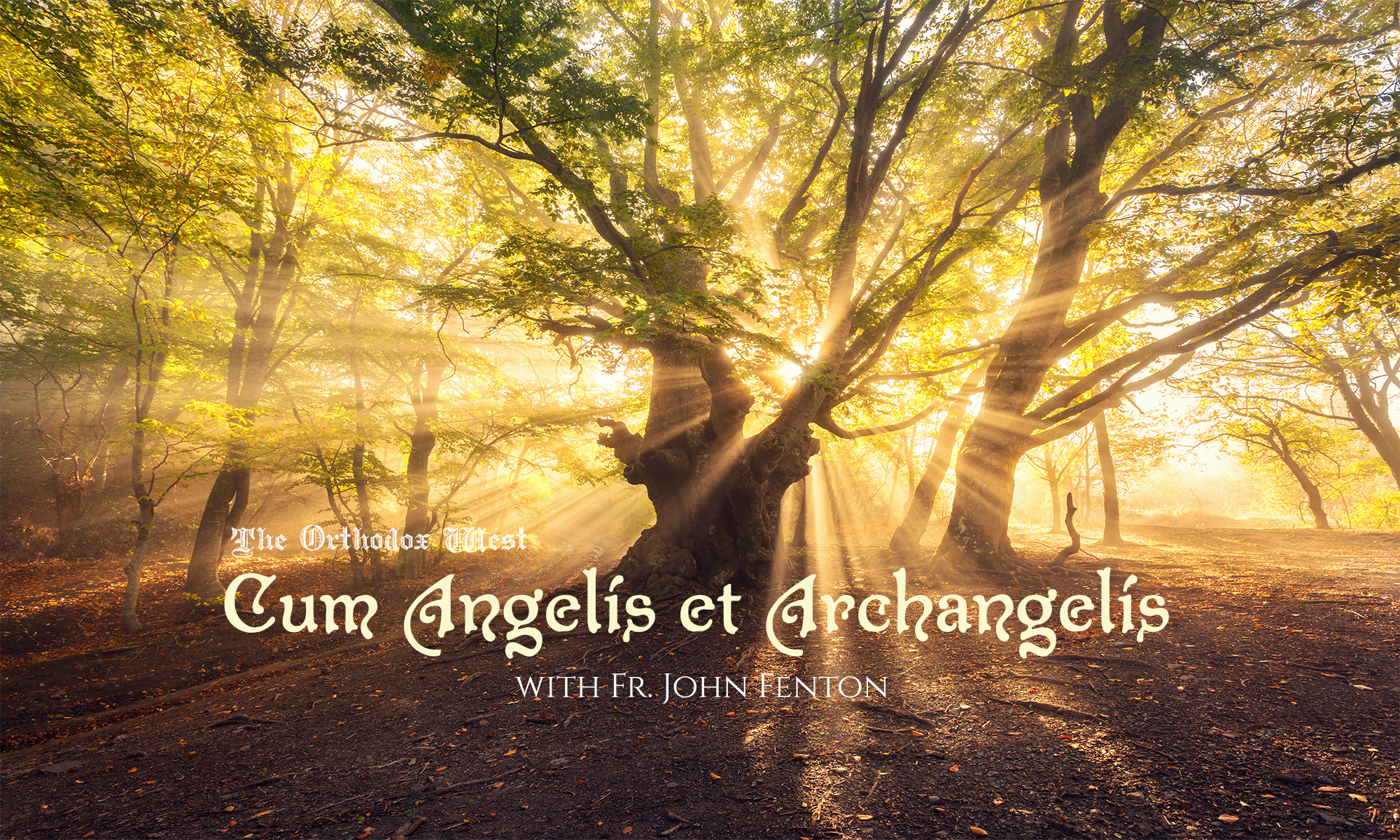The Mass is not a human construct, fashioned according to our notions of pleasing worship. Rather, the Mass is divinely designed, fashioned by God to the smallest detail, including the style and shape of the vestments. This means that the Divine Liturgy is not divine because it is about God or in God’s presence; rather, the Mass is divine because it comes from God.
This understanding is clearly and forthrightly stated by God Himself in the Old Testament, which is both the beginning point and the foundation of all Orthodox worship. Consider this analysis by Archimandrite Irenei Steenberg:
The Lord is quite explicit in the Scriptures that the worship engaged in by His people is not to be fashioned of their design nor like that of other tribes, stating clearly that ‘You shall not worship the LORD your God with such things.’ (Deut 12.4) but in the way He has revealed. This is not left as a vague concept: precise details of liturgical actions, structures, adornments, vestments and rites are spelled out by God down to their minutiae (cf. Exod 12, 13, 25-31), even with respect to the physical place of worship (‘Be careful not to sacrifice your burnt offerings anywhere you please; offer them only at the place the Lord will choose…and there observe everything I command you.’ Deut 12.13-14). This precision and exactitude are grounded in the driving understanding that it is God who has chosen and fashioned the means of right worship (Deut 12.11), and that the human race is to receive it as the means of experiencing heavenly reality in the created, earthly realm. (In On the Tree of the Cross, p. 18)
In the second place, to say that the Mass is divine means that God has fashioned the liturgy in the way He has, because this is how He chooses to be worshipped by us. As such, the Divine Liturgy is inspired by God in the same sense that the Scriptures are inspired by God. One can conclude, then, that it is utterly undivine (and therefore unbiblical and unorthodox) to suggest that how we worship or where we worship is not as important as the fact that we worship and pray. For worshipping God in any way other than the way He has determined for us is self-chosen—that is, the worship we impose upon God, insisting that He accept what we offer.
What Our Lord offers to us, and invites us to receive in faith, is nothing less than Himself. And He offers Himself, not noeticly or emotionally—that is, not merely to suit our thoughts or feelings of Him. Neither does He offer Himself merely symbolically or representationally—as if, in pictures or mere language because that is how we communicate. Our Lord offers Himself physically and really, truly and completely. And so, in the third place, the Divine Liturgy is divine because it brings us into communion with the Divine Himself.
And this is, by far, the most important point. As such, it is the point we too often overlook. So let me say it again, another way. The Divine Liturgy, the Mass, is divine precisely because in it, we receive God Himself. The same God who was born of the Virgin Mary, the same God who taught and healed, the same God who was tempted in every respect as we are, the same God who carried our sorrows and suffered our death, the same God who raised Himself up from the dead and then ascended in glory into heaven—this is the God who gives Himself to us in the Mass.
And so the Mass is not the time we carve out for Him, but the gift of Him placing His timeless Self in us so that we might rise above all the things that frustrate and annoy. And the Mass is not our sacrifice for Him, but His sacrifice placed into our mouths and hearts. And the Mass is not our offering for His benefit, but His offering for our salvation. And, finally, the Mass is not us showing Him love, but Him being in this place the Love that He is.
